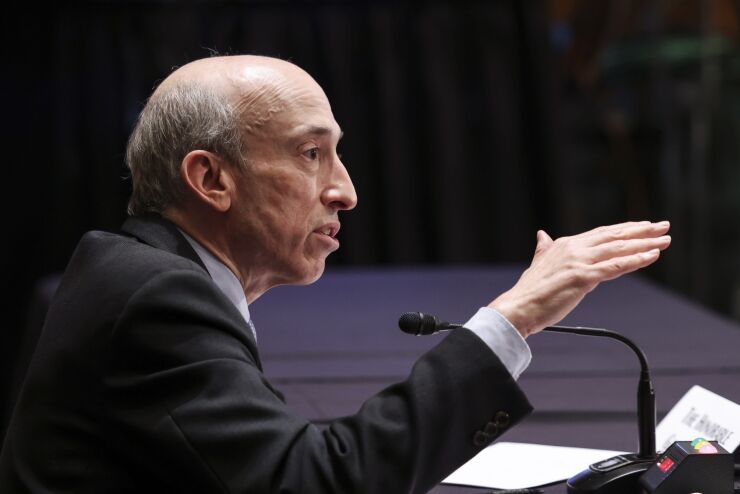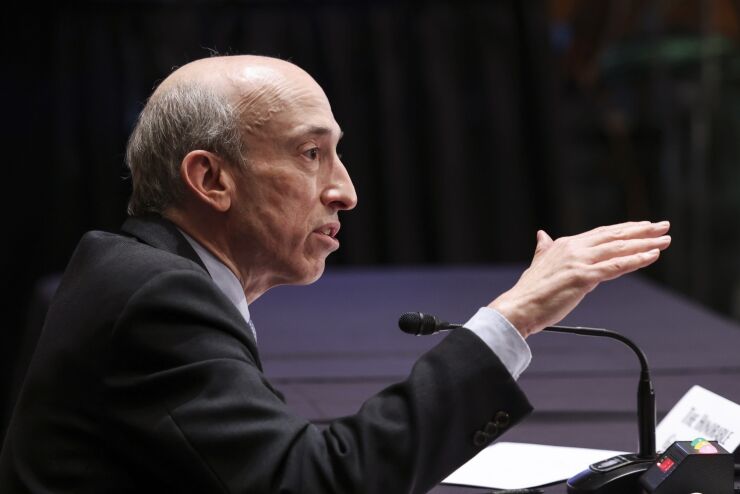WASHINGTON — The Securities and Exchange Commission will extend the public comment period for its landmark climate disclosure proposal by 30 days, the agency announced Monday.
The proposed rulemaking, unveiled in March, would require many banks and other publicly traded companies to

The public comment period for the proposal, which ran
"The SEC benefits greatly from hearing from the public on proposed regulatory changes,” Chair Gary Gensler said in a press release. “Commenters with diverse views have noted that they would benefit from additional time to review these three proposals, and I'm pleased that the public will have additional time to provide thoughtful feedback."
The proposal is a high-water mark for the American government’s oversight of public firms’ relationships to climate change. Among the proposed disclosures, companies will be required to calculate three categories of emissions, ranging from a company’s direct carbon footprint, indirect emissions in the form of purchased energy, and emissions from “upstream and downstream activities in a registrant’s value chain” — otherwise known as Scope 3 emissions.

Banks large and small have worried that such a mandate could carry a
Beyond emission disclosures, the SEC’s climate rule would also direct public firms to identify and disclose the broader risks that climate change may pose to their business, including from societal energy transition and extreme weather events.





